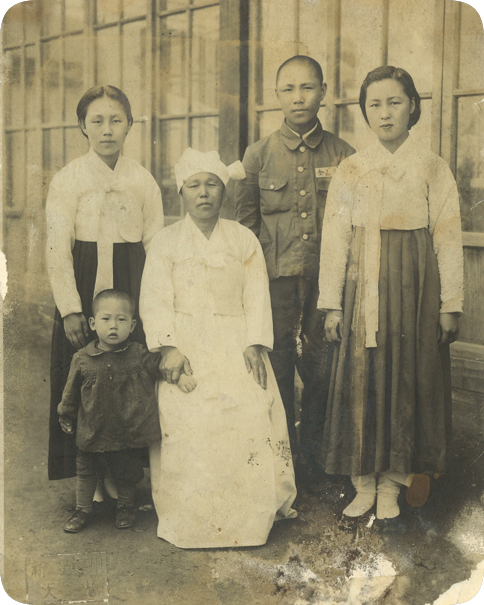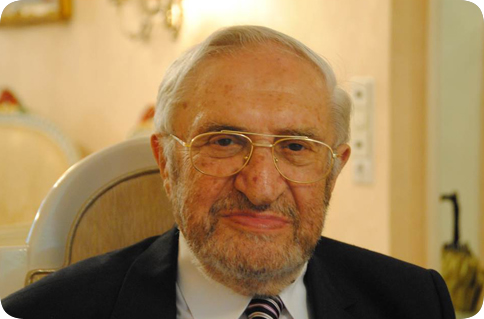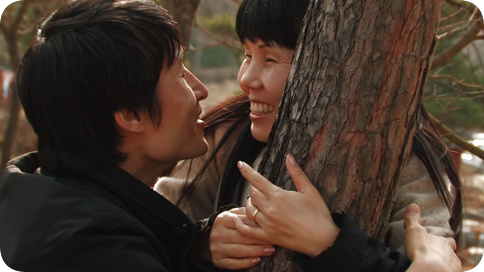| Join Our List |  |
| | 
|
FROM THE EDITORS
| | In this issue of News and Reviews, we bring you moving personal stories about family relations and the devastations of war. He defied the Tide of Time tells the story of Japanese diplomat Chiune Sugihara, who, while stationed in Kaunas, Lithuania, defied the orders of his superiors and endorsed transit visas for several thousand Jews trying to flee the Nazis during World War II. Memory of Forgotten War delves into the personal struggles of families torn apart by the Korean War as the country was rent in two. Planet of Snail explores the deep connections forged in a marriage in which husband and wife bring both the challenges and the unique perspectives of living with disabilities to the relationship. Although disparate in theme, these three works all explore the strength and beauty of the human spirit in the hardest of circumstances. AEMS is excited to present AAS Film Expo 2015 at the upcoming Association for Asian Studies Annual Conference in Chicago, IL on March 26-28, 2015. All screenings are free of charge, and we would like to invite educators and the public to join us for this year's expo, entitled "Fleeting Past, Present Asia." Please look to the AEMS website later this month for film descriptions and a full schedule. Elizabeth Oyler and Yimin Wang, co-editors |
FILM REVIEW | | | Memory of Forgotten War Directed by Deann Borshay Liem and Ramsay Liem. 2013. 38 minutes.
Review by Sangsook Lee-Chung.  The Korean War (1950-1953) has remained "unfinished" for more than 60 years. No peace treaty has been signed, yet this war is almost forgotten. Ironically, it is a "forgotten war," not only by Americans but also by Koreans, despite the fact that the consequences of the war continue to shape American foreign policy in that region, as well as the politics of the two Koreas. As most Americans know little about it and simply recall Korea either with the infamous image of North Korea's communist dictators, or the recent K-Pop sensation of Psy's "Gangnam Style," many South Koreans of today's new generation don't know exactly when the war broke out or regard it only as a distant historical event.
The documentary film Memory of Forgotten War insightfully explores the continuous impact of the Korean War and powerfully challenges historical amnesia about the conflict. The film mainly follows the stories of four Korean-Americans who survived the war and its aftermath; however, it also situates their stories in the trajectory of the war and a broader historical context by providing analyses by historians Bruce Cumings and Ji-Yeon Yuh and rich archival images. International relations paradigms and Korea's own official nationalist historiography generally frame discussions of the war's causes and effects. Consequently, what has to be collectively remembered or forgotten has been dictated by these approaches. However, in this film, directors Deann Borshay Liem and Ramsay Liem highlight the lasting impact of the war on ordinary people from a different angle, reminding us what should be remembered, and suggesting what approaches might be needed to heal the collective pain and trauma of war by focusing on the on-going healing processes of the individuals depicted in the film. ... READ MORE... |
| FILM REVIEW | | He defied the Tide of Time Written and directed by Suzanne Concha Emmrich. 2012. 29 minutes. In Japanese, English, and German with English subtitles.
Reviewed by Christine Beresniova.

During the opening credits of He defied the Tide of Time, an unidentified voice explains, "I didn't care if I was fired. Anyone in that situation would have done the same." Although the words are simple, they represent an extreme situation that was anything but representative of how most individuals did act at the time. The words are those of Chiune Sugihara, a Japanese diplomat stationed in Lithuania during WWII, who saved over 6,000 Jews from the Holocaust by issuing much needed Japanese transit visas. While the number of Jewish refugees that Sugihara saved from certain death was considerable, his story is still not well known. He defied the Tide of Time attempts to change this oversight by shedding light on Sugihara's incredible story.
Skilled at learning languages, Chiune Sugihara worked for the Japanese Ministry of Foreign Affairs at various international posts. Sugihara was also trained in espionage, which led him to the extreme situation alluded to in the film's opening scene. In 1939, Sugihara was responsible for opening a Japanese Consulate in the Lithuanian town of Kaunas. Opened under the auspices of assisting Japanese tourists and businessmen in the region, the consulate provided a means for Sugihara to gather intelligence about the Soviet Union and Germany on the eve of WWII. The clandestine information gathered by Sugihara allowed him to warn individuals-especially Jews-of the coming Nazi occupation in Lithuania.
... READ MORE... |
| FILM REVIEW | | Planet of Snail Directed by Seungjun Yi. 2012. 87 minutes. In Korean with English subtitles. Reviewed by Dohye Kim. 
Hearing that this documentary is about a South Korean couple - a deaf-blind husband and his wife who has a spinal deformity - it would be easy to presume that this film is dark in tone. This would be very plausible given that the concept of disability has been portrayed very negatively, particularly in the South Korean context, where disabled people have mainly been conceptualized as recipients of benevolent assistance. Planet of Snail disrupts this presupposition; it is a strikingly bright and peacefully beautiful love story. In several occasions in the film, Young-chan, the husband, narrates his poems. "The darkness and silence [which] were with God... came to me." But Young-chan's darkness and silence can be shattered by his bridge to the world - Soon-ho, his wife. This film shows the language that the couple uses to communicate with one another and the world, and how this language builds the kind of marriage that ordinary people, and in particular those who do not have physical disabilities, long to achieve. Young-chan and Soon-ho communicate with each other by touching hands. Soon-ho's fingers touch the back of Young-chan's hands, as if typing braille. If Soon-ho does not speak while she touches his hands, the viewer cannot understand what she says. Fingers and hands, or rather the sense of touch constructs a language all of its own. Young-chan feels the spring by quietly hugging and touching the tree. Obviously, this world moves slowly. Young-chan says, "Feeling heavy in my heart, I am dying to run." But he cannot, he can do so "only in my [his] imagination." This is why he lives in the planet of snail. ... |
| AsiaLENS Film Series | | AsiaLENS is a series of free public film screenings and lecture / discussion programs -- organized by AEMS in collaboration with the Spurlock Museum and Illinois Program for Research in the Humanities -- presenting recent documentary and independent films on issues reflecting contemporary life in Asia. Local and visiting experts introduce the films and lead audiences in post-screening discussions. All AsiaLENS screenings are FREE and open to the public. Join us at Spurlock Museum, Knight Auditorium, 600 S. Gregory Street, Urbana, IL 
Upcoming Screenings: Buddhism after the Tsunami - The Souls of Zen 3/11 Japan Special A film by Tim Graf and Jakob Montrasio. 2012. 63 minutes. In Japanese and English, with English subtitles.
Tuesday, March 10, 2015 - 7:00pm
Post-screening discussion by Dr. Brian Ruppert, University of Illinois Associate Professor of Religion and East Asian Languages and Cultures. Pictures from a Hiroshima Schoolyard Written and Directed by Bryan Reichhardt, Produced by Shizumi Shigeta Manale. 2013. 85 minutes.
Tuesday, April 14, 2015 - 7:00 pm Post-screening discussion by Dr. Roderick Wilson, University of Illinois Assistant Professor of History and East Asian Languages and Cultures.
|
| WEBSITE: DIGITAL ASIA | |  Digitial Asia, a website bringing documentary films on contemporary East Asia to the classroom, has been launched by the Asian Educational Media Service (AEMS). In providing free access to excerpts of scholar made films on Asia, along with downloadable curriculum materials, Digital Asia offers high school and college educators an easy way to incorporate today's issues in Asia as part of their lesson plans. Digital Asia can be found at: www.digitalasia.illinois.edu Digital Asia is funded by the Freeman Foundation of Stowe, VT., New York City and Honolulu and by the IL/IN East Asia National Resource Center funded by U.S. Department of Education Title VI. |
| | SUPPORT AEMS | | AEMS invites our supporters to make targeted donations to enhance our holdings and public programs. A donation of $30 can be used to purchase a film for the AEMS library. $300 will sponsor an AsiaLENS screening on campus or in the Champaign-Urbana community. $500 will help underwrite a film and curriculum materials in Digital Asia. Donations for specific materials or events will be acknowledged both in News and Reviews and at sponsored events. Thank you for your ongoing support of AEMS.
Follow this link to make an online donation.
PLEASE NOTE:
You will be directed to the CEAPS Giving page.
After clicking "Continue With Your Donation" you will find a Special Instructions section where you can highlight "yes" under the question "Do you have other instructions for processing your gift?"
A text box will open where you can direct your gift to the following:
AEMS - Asian Educational Media Service Fund -or- Digital Asia Fund
|
NEWS AND REVIEWS
| | Previous issues of News and Reviews:
Electronic newsletters - September 2010 - Fall 2014
Archived print newsletters - Spring 1998 - Fall 2009
|
| ABOUT AEMS | | Media Production Group
In addition to hosting film screenings, AEMS also produces and distributes its own materials under the brand name Media Production Group (MPG). These are short educational videos and DVDs about an aspect of Asian culture suitable for classroom use and accompanied by curriculum.
Database
AEMS maintains a searchable database of over 6,000 films about Asia, including length, format, distributor and synopsis.
Library
The AEMS library, through its connection to the Illinois Heartland library system, circulates videos and DVDs locally from its collection of more than 2,000. Search our online catalog here. |
| |